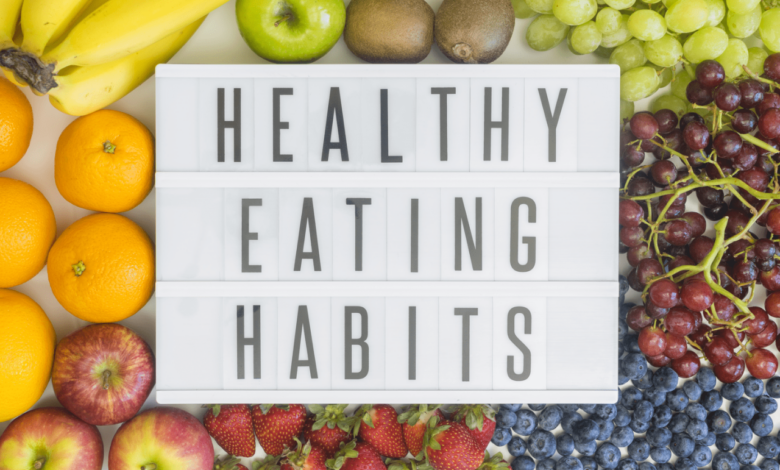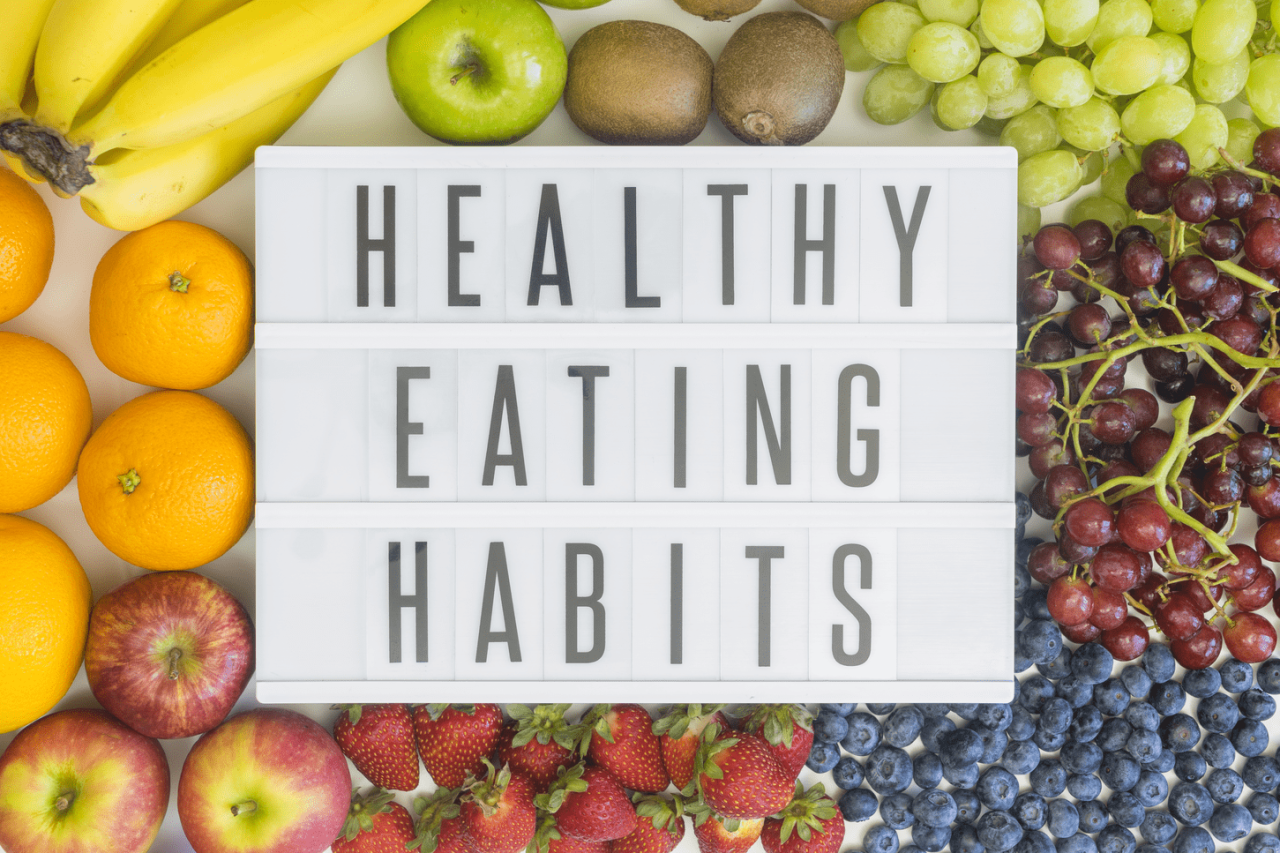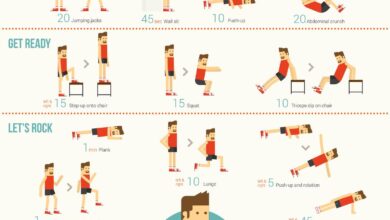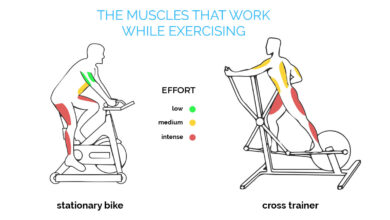
Nutrition Considerations for Performance Gains: Fueling Your Potential
Nutrition considerations for performance gains are paramount, whether you’re an athlete striving for peak performance, a student aiming for better focus, or a professional seeking to maximize productivity. It’s not just about eating to survive, it’s about fueling your body to thrive.
This means understanding how the right foods can power your goals, from building muscle to sharpening your mind.
This journey delves into the science behind nutrition, exploring the role of macronutrients, micronutrients, and hydration in achieving optimal performance. We’ll also delve into the importance of timing your meals strategically and tailoring your diet to your individual needs. By the end, you’ll have a solid understanding of how to fuel your body for success, whether you’re pushing your physical limits or simply seeking to perform at your best in daily life.
Understanding Performance Goals
Before diving into the specific nutritional needs for performance enhancement, it’s crucial to first understand the type of performance you’re aiming to improve. Different performance goals require tailored nutritional strategies.
Types of Performance Goals
The type of performance you’re targeting significantly influences your nutritional needs. Here are some common performance goals and their corresponding nutritional requirements:
- Athletic Performance: Athletes need to focus on consuming enough calories and macronutrients (carbohydrates, protein, and fat) to support their training and competition demands. They also need to pay attention to specific micronutrients like iron, calcium, and vitamin D to support muscle recovery and bone health.
- Cognitive Performance: Individuals aiming to enhance cognitive function, such as students or professionals, should prioritize foods rich in omega-3 fatty acids, antioxidants, and B vitamins, which are essential for brain health and function.
- Work-Related Performance: Individuals engaged in physically demanding jobs or those requiring high mental focus need to consume a balanced diet that provides adequate energy, hydration, and nutrients to support sustained performance throughout the workday.
Examples of Performance Goals and Corresponding Nutritional Requirements
- Marathon Runner: A marathon runner needs to consume a high-carbohydrate diet to fuel their endurance training and race. They also need to prioritize protein intake for muscle recovery and hydration to prevent dehydration.
- Surgeon: A surgeon requires a diet rich in antioxidants and omega-3 fatty acids to support brain function and cognitive performance during long and demanding surgical procedures.
- Construction Worker: A construction worker needs a diet that provides sufficient calories and protein to support their physical labor and muscle maintenance.
Macronutrients for Performance

Macronutrients are essential components of a balanced diet, playing a crucial role in fueling your body for optimal performance. They provide the building blocks for muscle growth, energy production, and overall health. Understanding the role of each macronutrient – carbohydrates, proteins, and fats – is essential for optimizing your nutrition plan to support your performance goals.
Carbohydrates for Energy
Carbohydrates are the body’s primary source of energy, particularly during intense physical activity. They are broken down into glucose, which is used by muscles for fuel. Consuming carbohydrates before, during, and after exercise helps maintain energy levels, improve endurance, and promote recovery.
The recommended carbohydrate intake for athletes varies depending on training intensity and duration, but generally ranges from 5-12 grams per kilogram of body weight per day.
Protein for Muscle Growth and Repair
Protein is essential for building and repairing muscle tissue, crucial for athletes and fitness enthusiasts. During exercise, muscle fibers are broken down, and protein provides the necessary amino acids for rebuilding and strengthening these fibers.
Adequate protein intake is essential for maximizing muscle growth and recovery, particularly after intense training sessions. The recommended daily protein intake for athletes is generally 1.2-1.7 grams per kilogram of body weight.
When it comes to performance gains, fueling your body with the right nutrients is crucial. Vegetables play a vital role in this, providing essential vitamins, minerals, and antioxidants that support muscle recovery and energy production. If you’re looking for ways to boost your veggie intake, check out this helpful guide: 5 ways to up your vegetable game.
By incorporating a variety of colorful vegetables into your diet, you’ll not only be supporting your overall health but also setting yourself up for optimal performance.
Healthy Fats for Hormone Production and Cell Function
While often overlooked, healthy fats play a vital role in supporting hormone production, cell function, and overall health. They help regulate inflammation, improve satiety, and support energy production.
Include sources of healthy fats like avocados, nuts, seeds, and fatty fish in your diet for optimal performance and overall well-being.
Sample Meal Plan for Optimal Performance
A balanced meal plan that prioritizes carbohydrates, protein, and healthy fats is essential for maximizing performance. Here’s a sample meal plan that incorporates these macronutrients:
- Breakfast:Oatmeal with berries and a handful of almonds, a protein smoothie with fruit and spinach, or whole-grain toast with eggs and avocado.
- Lunch:Grilled chicken or fish with brown rice and steamed vegetables, a salad with quinoa and chickpeas, or a lentil soup with whole-grain bread.
- Dinner:Salmon with roasted vegetables and quinoa, chicken stir-fry with brown rice, or a vegetarian chili with beans and brown rice.
- Snacks:Fruits, vegetables, nuts, seeds, Greek yogurt, or protein bars.
Micronutrients and Performance
While macronutrients provide the energy for physical activity, micronutrients play a crucial role in supporting and enhancing performance. These essential vitamins and minerals are involved in various metabolic processes that influence muscle growth, energy production, recovery, and overall health.
When it comes to maximizing performance, nutrition plays a crucial role. From fueling your workouts to optimizing recovery, the right food choices can make a world of difference. And while it’s common knowledge that a balanced diet is key, there are many nuances to consider.
To gain deeper insights into the science behind nutrition and its impact on performance, I recommend checking out this insightful article: 3 surprising takeaways about being a registered dietitian. This article delves into the realities of being a registered dietitian, offering valuable perspectives on the field and its role in promoting optimal health and performance.
Ultimately, understanding the intricacies of nutrition and its connection to performance can empower you to make informed choices and reach your full potential.
Importance of Micronutrients for Performance
Micronutrients are vital for optimizing athletic performance. They act as coenzymes and cofactors, assisting in the breakdown of macronutrients for energy, muscle repair, and tissue growth. Additionally, they contribute to immune function, reducing the risk of illness and injury.
Key Micronutrients for Performance
- Iron:Iron is a crucial component of hemoglobin, which carries oxygen to muscles. Adequate iron intake is essential for endurance athletes, as it helps deliver oxygen to working muscles during prolonged exercise.
- Vitamin D:Vitamin D plays a role in muscle function and strength.
Studies have shown that individuals with adequate vitamin D levels may experience improved muscle mass and strength.
- Calcium:Calcium is vital for bone health and muscle contraction. Athletes require sufficient calcium intake to prevent bone loss and maintain optimal muscle function.
- Magnesium:Magnesium is involved in energy production and muscle relaxation. It helps prevent muscle cramps and promotes recovery after exercise.
- Potassium:Potassium is an electrolyte that helps maintain fluid balance and muscle function. Adequate potassium intake is important for athletes, especially those engaged in intense or prolonged training.
- Zinc:Zinc is involved in protein synthesis and immune function. It plays a role in muscle growth and repair, as well as supporting the immune system to prevent illness.
Micronutrient Functions and Sources
| Micronutrient | Function | Recommended Sources |
|---|---|---|
| Iron | Oxygen transport to muscles | Red meat, poultry, fish, beans, lentils, spinach |
| Vitamin D | Muscle function and strength | Sunlight exposure, fatty fish, eggs, fortified milk |
| Calcium | Bone health, muscle contraction | Dairy products, leafy green vegetables, fortified foods |
| Magnesium | Energy production, muscle relaxation | Green leafy vegetables, nuts, seeds, whole grains |
| Potassium | Fluid balance, muscle function | Bananas, potatoes, tomatoes, beans, lentils |
| Zinc | Protein synthesis, immune function | Meat, poultry, seafood, beans, nuts, seeds |
Timing of Nutrition for Performance

The timing of your nutrition plays a crucial role in optimizing your performance. It’s not just about what you eat, but when you eat it. By strategically planning your meals and snacks, you can ensure your body has the energy, nutrients, and building blocks it needs to train hard, recover effectively, and reach your full potential.
Pre-Workout Nutrition
Consuming the right foods before your workout can provide you with the energy and focus needed to push yourself harder and longer. Pre-workout nutrition should focus on providing readily available carbohydrates for fuel and moderate protein to support muscle preservation.
Importance of Pre-Workout Nutrition
- Energy for Exercise:Carbohydrates are your body’s primary source of fuel for exercise. Eating a pre-workout snack rich in carbohydrates ensures you have sufficient energy stores to power through your workout.
- Improved Focus and Concentration:Consuming a balanced pre-workout meal or snack can help stabilize blood sugar levels, which can improve focus and concentration during your workout.
- Muscle Preservation:Consuming a moderate amount of protein before exercise can help preserve muscle mass during intense training.
Post-Workout Nutrition
Post-workout nutrition is critical for muscle recovery and growth. After exercise, your body needs to replenish depleted energy stores, repair damaged muscle tissue, and synthesize new muscle protein.
Importance of Post-Workout Nutrition
- Muscle Recovery and Repair:Post-workout nutrition is crucial for muscle recovery. Consuming protein and carbohydrates helps repair damaged muscle fibers and rebuild muscle tissue.
- Muscle Growth:After exercise, your body is in a state of increased protein synthesis, making it more receptive to building new muscle. Consuming protein after your workout helps maximize this anabolic window.
- Replenish Glycogen Stores:Carbohydrates are essential for replenishing glycogen stores depleted during exercise. Consuming carbohydrates after your workout helps restore energy levels and prepares your body for your next workout.
Sample Meal Plan
Here’s a sample meal plan that incorporates the principles of timing nutrition for performance.
Example Meal Plan
| Time | Meal | Example Foods |
|---|---|---|
| 2-3 hours before workout | Pre-Workout Meal |
|
| 30-60 minutes before workout | Pre-Workout Snack |
|
| Immediately after workout | Post-Workout Snack |
|
| 1-2 hours after workout | Post-Workout Meal |
|
Hydration and Performance
Water is essential for optimal physical function, playing a critical role in maintaining hydration and supporting athletic performance. When adequately hydrated, the body functions efficiently, allowing for optimal energy production, temperature regulation, and nutrient transport. However, dehydration can significantly impact performance, leading to fatigue, muscle cramps, and decreased endurance.
Importance of Water for Hydration and Performance
Water is a crucial component of blood, which transports oxygen and nutrients to muscles. During exercise, the body loses water through sweat, leading to a reduction in blood volume. This can result in decreased blood flow to muscles, reducing oxygen delivery and nutrient transport.
Consequently, the body may experience fatigue, reduced muscle strength, and a decline in performance.
When it comes to nutrition for performance gains, carb-loading is a common strategy. But is it always the best choice? Many athletes swear by pasta, but the question of can pasta be healthy is a valid one. Ultimately, the key is finding the right balance of complex carbohydrates, protein, and healthy fats to fuel your body for optimal performance.
Electrolyte Benefits During Intense Exercise
Electrolytes, such as sodium, potassium, and magnesium, are minerals that carry an electrical charge and are essential for maintaining fluid balance, muscle function, and nerve transmission. During intense exercise, electrolytes are lost through sweat, which can lead to electrolyte imbalance and negatively impact performance.
Electrolyte imbalances can cause muscle cramps, fatigue, and dizziness. Replenishing electrolytes lost through sweat is crucial for maintaining hydration and optimizing performance. Sports drinks containing electrolytes can help replenish these lost minerals and improve performance during prolonged or intense exercise.
Strategies for Staying Hydrated Throughout the Day
Staying hydrated is crucial for overall health and well-being, especially for athletes and individuals engaging in regular exercise. Here are some strategies for maintaining adequate hydration throughout the day:
- Drink water consistently throughout the day.Aim to consume water regularly, even when not thirsty, to prevent dehydration.
- Consume water before, during, and after exercise.Hydrating before exercise ensures adequate fluid levels, while drinking water during exercise helps prevent dehydration. Replenishing fluids after exercise is crucial for restoring lost fluids and supporting recovery.
- Consider consuming electrolyte-rich beverages.Sports drinks containing electrolytes can help replenish lost minerals and improve performance, especially during prolonged or intense exercise.
- Eat fruits and vegetables with high water content.Fruits and vegetables such as watermelon, cucumber, and spinach are naturally rich in water and can contribute to overall hydration.
- Monitor urine color.Light-colored urine is an indicator of adequate hydration, while dark yellow urine suggests dehydration.
Individualized Nutrition Plans

A one-size-fits-all approach to nutrition is ineffective for optimizing performance. Individual factors, such as age, activity level, and genetics, significantly influence nutritional needs and responses. Creating a personalized nutrition plan that considers these unique characteristics is crucial for maximizing performance gains.
Importance of Individual Factors, Nutrition considerations for performance gains
Individual factors play a critical role in determining optimal nutritional strategies for performance enhancement.
- Age:Nutritional needs change throughout the lifespan. For instance, younger athletes may require higher protein intake for growth and development, while older athletes may need to focus on bone health and muscle maintenance.
- Activity Level:The intensity, duration, and frequency of training significantly impact energy expenditure and nutrient requirements. Athletes engaging in high-intensity training may need increased calorie and carbohydrate intake to support energy demands, while those involved in endurance activities may require a higher proportion of fat in their diet.
- Genetics:Genetic variations can influence nutrient absorption, metabolism, and response to training. For example, some individuals may have a genetic predisposition for higher protein requirements or a slower metabolism, requiring adjustments in their nutrition plan.
Role of a Registered Dietitian
Registered dietitians (RDs) are qualified healthcare professionals specializing in nutrition. They play a crucial role in developing individualized nutrition plans for athletes, considering their unique characteristics and performance goals.
- Assessment and Evaluation:RDs conduct thorough assessments, including dietary history, physical activity levels, and anthropometric measurements, to understand an athlete’s current nutritional status and identify areas for improvement.
- Personalized Recommendations:Based on the assessment, RDs provide tailored recommendations for macronutrient intake, meal timing, and supplement use, ensuring they align with the athlete’s training regimen and performance goals.
- Monitoring and Adjustments:RDs monitor progress and make necessary adjustments to the nutrition plan based on the athlete’s response and performance outcomes. This ongoing monitoring ensures the plan remains effective and supports continued performance gains.
Examples of Individualized Nutrition Plans
- Endurance Athlete:An endurance athlete participating in a marathon may require a higher carbohydrate intake to fuel prolonged exercise. Their diet may include a greater proportion of complex carbohydrates, such as whole grains and starchy vegetables, along with adequate protein for muscle recovery.
Additionally, they may benefit from consuming electrolytes to prevent dehydration during long training sessions.
- Strength Athlete:A strength athlete training for powerlifting may prioritize protein intake to support muscle growth and repair. Their diet may include lean protein sources, such as chicken, fish, and beans, in each meal to optimize muscle protein synthesis. They may also benefit from supplementing with creatine, a naturally occurring compound that can enhance strength and power.
Nutrition for Performance Recovery
After an intense workout, your body needs time to recover and rebuild. Nutrition plays a crucial role in this process, providing the essential building blocks for muscle repair and tissue regeneration. By consuming the right nutrients at the right time, you can accelerate your recovery and prepare your body for the next challenge.
Key Nutrients for Recovery
The following nutrients are essential for promoting muscle repair and tissue regeneration after exercise:
- Protein: Protein is the building block of muscle tissue. Consuming adequate protein after exercise helps to repair and rebuild damaged muscle fibers, promoting muscle growth and strength. Aim for 0.25-0.35 grams of protein per kilogram of body weight within 2 hours after exercise.
- Carbohydrates: Carbohydrates are the primary source of energy for your body. After exercise, your glycogen stores are depleted, and replenishing them is crucial for recovery. Consuming carbohydrates after exercise helps to restore glycogen levels, reducing muscle soreness and improving recovery time.
Aim for 1.2-1.5 grams of carbohydrates per kilogram of body weight within 4 hours after exercise.
- Creatine: Creatine is a naturally occurring compound that helps to increase muscle mass and strength. It also aids in recovery by improving energy production and reducing muscle damage. Supplementing with creatine can be beneficial for athletes looking to enhance their recovery and performance.
- Glutamine: Glutamine is an amino acid that plays a role in muscle protein synthesis and immune function. It is particularly important for recovery after intense training, as it can help to reduce muscle soreness and inflammation.
Sample Post-Workout Meal Plan
Here’s a sample meal plan that can help promote recovery after a tough workout:
- Within 30 minutes of exercise: Consume a shake or smoothie containing protein powder, carbohydrates, and a source of healthy fats, such as a banana, berries, and almond milk.
- Within 2 hours of exercise: Enjoy a meal rich in protein and carbohydrates, such as grilled chicken with brown rice and steamed vegetables.
- Throughout the day: Continue to prioritize protein-rich foods, such as lean meats, fish, eggs, and dairy products, along with complex carbohydrates, such as whole grains and fruits.
Nutrition for Sustained Performance
Achieving peak performance isn’t just about hitting a temporary high; it’s about maintaining consistency over the long haul. Just like a car needs regular maintenance to run smoothly, your body requires a strategic nutritional approach to fuel your performance day after day, week after week.
Benefits of a Balanced Diet for Sustained Performance
A balanced diet provides the building blocks your body needs to perform at its best, prevent burnout, and avoid injury.
- Consistent Energy Levels:A balanced diet rich in complex carbohydrates, healthy fats, and lean protein provides a steady stream of energy, preventing energy crashes and promoting sustained focus and endurance.
- Improved Recovery:Adequate protein intake is crucial for muscle repair and growth, while essential vitamins and minerals support the body’s natural recovery processes.
- Reduced Risk of Injury:Proper nutrition strengthens bones, joints, and ligaments, reducing the risk of injuries caused by overuse or fatigue.
- Enhanced Mental Clarity:A balanced diet promotes cognitive function, improves mood, and reduces the risk of fatigue-related mental fog.
- Improved Sleep Quality:A balanced diet, particularly one that emphasizes tryptophan-rich foods, can promote better sleep, leading to improved recovery and performance.
Incorporating Healthy Eating Habits into a Busy Lifestyle
Maintaining a healthy diet can be challenging with a busy schedule. Here are some practical tips to incorporate healthy eating habits into your daily routine:
- Plan Ahead:Take time to plan your meals and snacks for the week. This helps you make healthier choices and avoid impulsive decisions when you’re short on time.
- Pack Your Own Meals:Bringing your lunch and snacks to work or school helps you control portion sizes and avoid unhealthy options found in vending machines or fast food restaurants.
- Snack Smart:Keep healthy snacks like fruits, vegetables, nuts, and yogurt on hand for when hunger strikes. This prevents you from reaching for unhealthy, processed snacks.
- Make Time for Cooking:Even if you only have 30 minutes to spare, you can prepare a healthy and nutritious meal. Choose simple recipes that require minimal prep time and use ingredients that are readily available.
- Prioritize Hydration:Drink plenty of water throughout the day to stay hydrated and prevent dehydration, which can negatively impact performance.
Final Review: Nutrition Considerations For Performance Gains
Ultimately, the key to maximizing your performance potential lies in a holistic approach to nutrition. It’s not about following rigid diets or eliminating entire food groups. Instead, it’s about making informed choices that support your specific goals and lifestyle. By prioritizing whole, unprocessed foods, timing your meals strategically, and paying attention to your body’s signals, you can unlock the power of nutrition to fuel your journey to peak performance.






